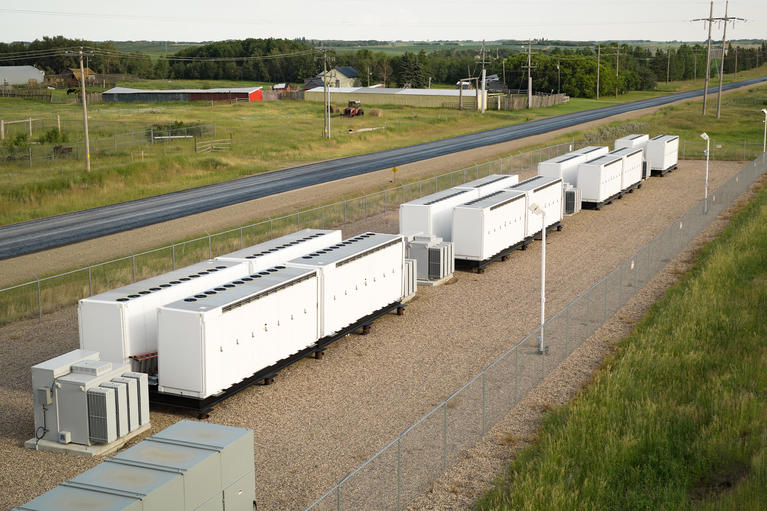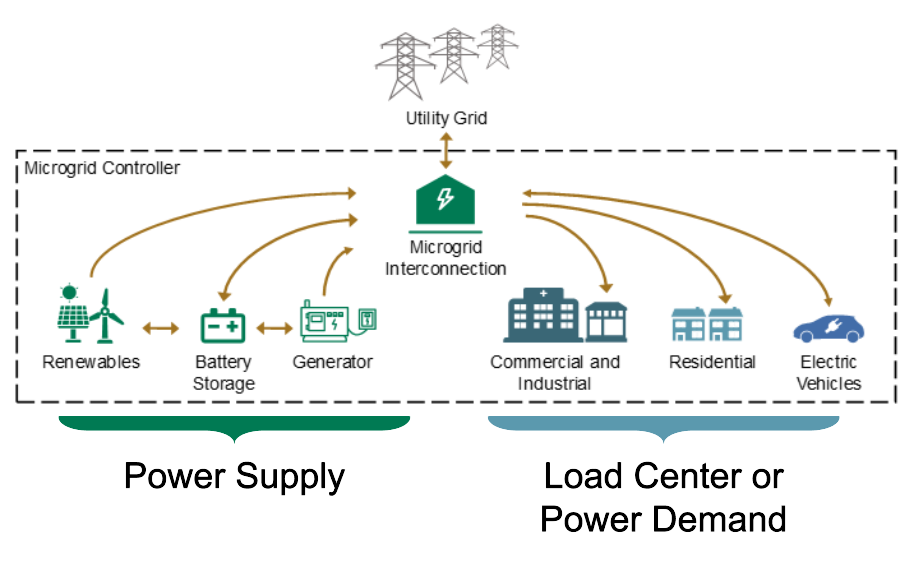
Colorado Microgrid Roadmap
Colorado Microgrid Roadmap
After incorporating two rounds of feedback from stakeholders, the Colorado Energy Office (CEO) and the Department of Local Affairs’ Colorado Resiliency Office (CRO) are proud to release the final Colorado Microgrid Roadmap 1.0. The State worked alongside contractors S & C Electric and NORESCO to develop this report.
The Microgrid Roadmap defines and evaluates different types of microgrids, develops criteria to identify priority projects, and recommends key policies to facilitate microgrid deployment in Colorado. It also includes strategies for addressing costs, interconnection standards, and legal considerations, which are among the main challenges for microgrid implementation in the state.
Read the Colorado Microgrid Roadmap 1.0
Supplemental materials, including the Critical Facility Prioritization Guide, Critical Facility Prioritization tool, and a synthesis of the stakeholder meetings are available below.
View Colorado Microgrid Roadmap supplemental materials
Watch Informational Webinar on Microgrid Roadmap Development
Contact Information
john.m.parks@state.co.us
Project Background
Colorado has recently experienced an increasing number of climate-related extreme weather events, including wildfires, winter storms, and floods. State lawmakers recognize the potential impacts of these extreme weather events on the electric grid and passed legislation (HB22-1249) directing CEO and CRO to develop a Microgrid Roadmap providing guidance on microgrid benefits and how Colorado microgrids can:
- improve grid resilience and reliability for individual customers and communities
- deliver and manage electricity
- provide necessary infrastructure in locations where extending distribution infrastructure is not practical
- operate independently and disconnected from the larger grid when necessary to meet the electricity needs of communities, neighborhoods, or buildings
Stakeholder Engagement and Public Comment
To inform the creation of the roadmap, the state collected public comment and hosted a series of interactive meetings to gather ideas and feedback on grid resiliency and microgrid solutions from a broad range of stakeholders. This included state agency staff, utilities, disproportionately impacted communities, microgrid developers, labor organizations, and commercial and industrial utility customers. The stakeholder engagement and public comment period for the draft roadmap has closed.
What is a microgrid?
A microgrid is a small network of interconnected electricity components that can function independently from the utility grid when necessary, such as during an extreme weather event. Local electricity generation, battery storage, and generators feed power to the microgrid interconnection. The microgrid interconnection can then distribute power to and from the utility grid, as well as directly to local electricity consumers, such as commercial, industrial, and residential buildings and electric vehicles. Because the microgrid interconnection receives power from multiple sources, it is able to disconnect from the utility grid and continue delivering electricity to local electricity consumers during utility grid power outages. A microgrid controller oversees this process to ensure uninterrupted, reliable access to electricity.
Find more information about microgrids on the Microgrids for Community Resilience (MCR) website, including Microgrids 101 and the Resilience Hubs website.

Objectives
The goal of this project is to produce a Microgrid Roadmap that can help guide policy and the development of microgrid solutions. This includes:
- Defining the different types of microgrids and their benefits, including if and how electric microgrids will improve grid resilience and reliability in Colorado
- Developing criteria to prioritize microgrid systems in places that are at high risk of electric service disruptions due extreme weather or inadequate infrastructure
- Recommending legislative or administrative actions to facilitate projects, including:
- statutory or rule changes
- factors to consider for the safety, development, maintenance, and deployment of microgrid solutions
- metrics to evaluate microgrid costs and benefits
- financial and technical support needs
- education and outreach programs, including apprenticeship programs
